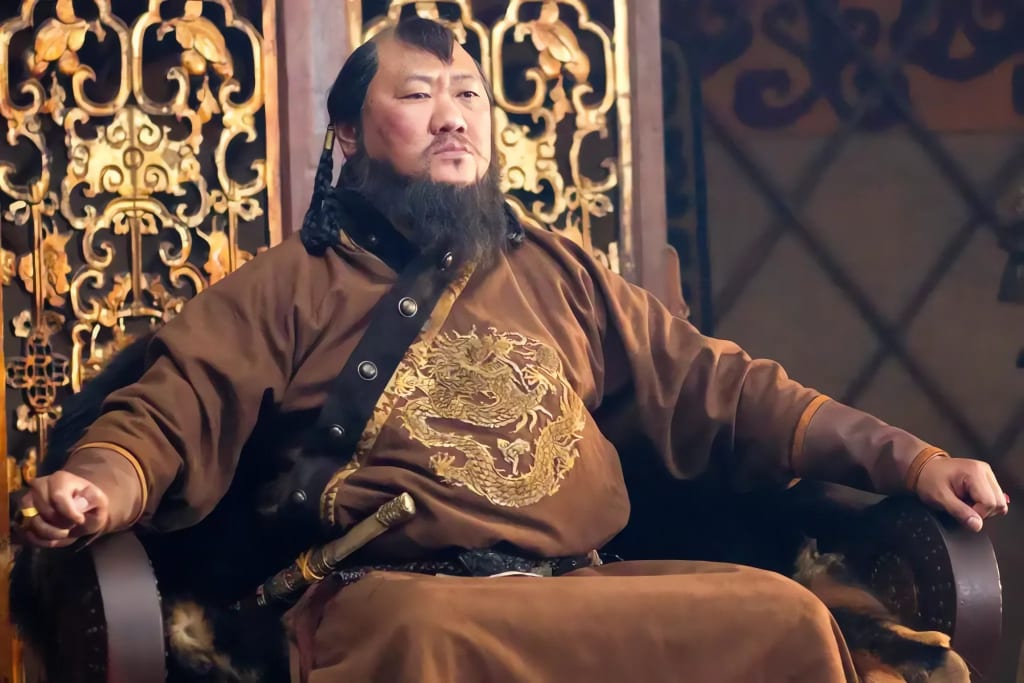Kubai Khan
The Great Mongol Emperor Who Ruled China

Kublai Khan, the grandson of Genghis Khan, was the greatest of the Mongol emperors after his predecessor and founder of the dynasty in China. Under his rule, the Mongol Empire reached its greatest extent, becoming one of the largest empires the world had ever seen. Kublai Khan was a wise ruler who managed to lead a wide variety of peoples and nations, adapting different traditions to his own government. He was born on September 23, 1215, in the current region of Mongolia. Despite his short period of leadership, Kublai Khan was considered an efficient administrator and was responsible for establishing the Mongol capital at Karacuru in present-day Mongolia. Under his leadership, the city became an important center of political-administrative and cultural activities of the empire.
Kublai Khan received a privileged education with an emphasis on the arts, politics, administration, and military strategies. He was 17 years old when his father passed away, which brought many responsibilities into the life of the young warrior. He was sent on diplomatic missions by the Mongol Empire and acquired political and military experience in various parts of the Mongol territory. In 1251, he received control of the Chinese territories in the eastern part of the country. After his brother became the Supreme Leader of the empire, Kublai Khan organized a group of Chinese advisors to introduce reforms in their territories. He was also in charge of expeditions with the aim of unifying China under the Mongol government.
Kublai Khan was passionate and highly influenced by Chinese culture. He introduced Feng Shui, an ancient Chinese technique used to seek harmony in the construction and decoration of houses and buildings, and used this method to decide on a location for his new capital. The chosen location was situated in a strategic point between the steppes of Mongolia and the more fertile Chinese plains, and was called Shango, also known as Xanadu by European chroniclers.
Despite the challenges presented by the terrain and fortifications, Kublai Khan managed to definitively conquer southern China after the Naval Battle of Amen, which marked the Sung dynasty's last stand against the Mongol invaders. He introduced a new social structure that divided the population into different social classes, the Mongol aristocracy and the foreign merchant class, exempt from taxes and enjoying special privileges, while the Chinese of the North and South bore most of the economic burden of the empire and were required to do much of the manual labor.
Under Kublai Khan's rule, there was the opening of direct contact between China and the West, which was made possible by Mongol control of Central Asian trade routes, mainly through the Silk Road. In the early 13th century, large numbers of Europeans and Central Asians went to China. The presence of Mongol power also allowed many Chinese to travel freely within the Mongol Empire as far as Russia, Persia, and Mesopotamia. Probably the best-known foreign visitor to visit China at that time was the Venetian merchant and traveler Marco Polo, who spent about 17 years living in the court of Kublai Khan.
Despite his authority as Emperor and possessing incalculable wealth, Kublai Khan's warlike nature could not be suppressed by the lifestyle of Chinese palaces. He decided to look east in search of new lands to conquer and managed to incorporate a large part of Southeast Asia, including Burma, into his domain. However, the new conquests cost the empire's coffers so much that even with the tributes acquired from the defeated peoples, the Mongols did not obtain real profits in military ventures.
In the year 1268, Kublai Khan sent Chinese ambassadors to Japan, making demands for tribute in gold and showing interest in Samurai warriors being sent to China to serve in his army. To Kublai's surprise, his demands were totally ignored by the Japanese, and a new war for the conquest of Japan ensued. The Mongols had no other option but to retreat and gave up on conquering Japan.
Later in his life, Kublai Khan developed excessive habits with food and alcoholic drinks, especially after the death of his favorite wife and a son who was the crown prince and of whom Kublai felt very proud. He ruled China for more than 30 years until his death from natural causes in 1294 at the age of 79. He was succeeded by his grandson, although the Mongol Empire faced decline after his death, lasting as one of the greatest empires in world history.
About the Creator
A História
"Hi. My name is Wellington and I'm a passion for general history. Here, I publish articles on different periods and themes in history, from prehistory to the present day.






Comments
There are no comments for this story
Be the first to respond and start the conversation.